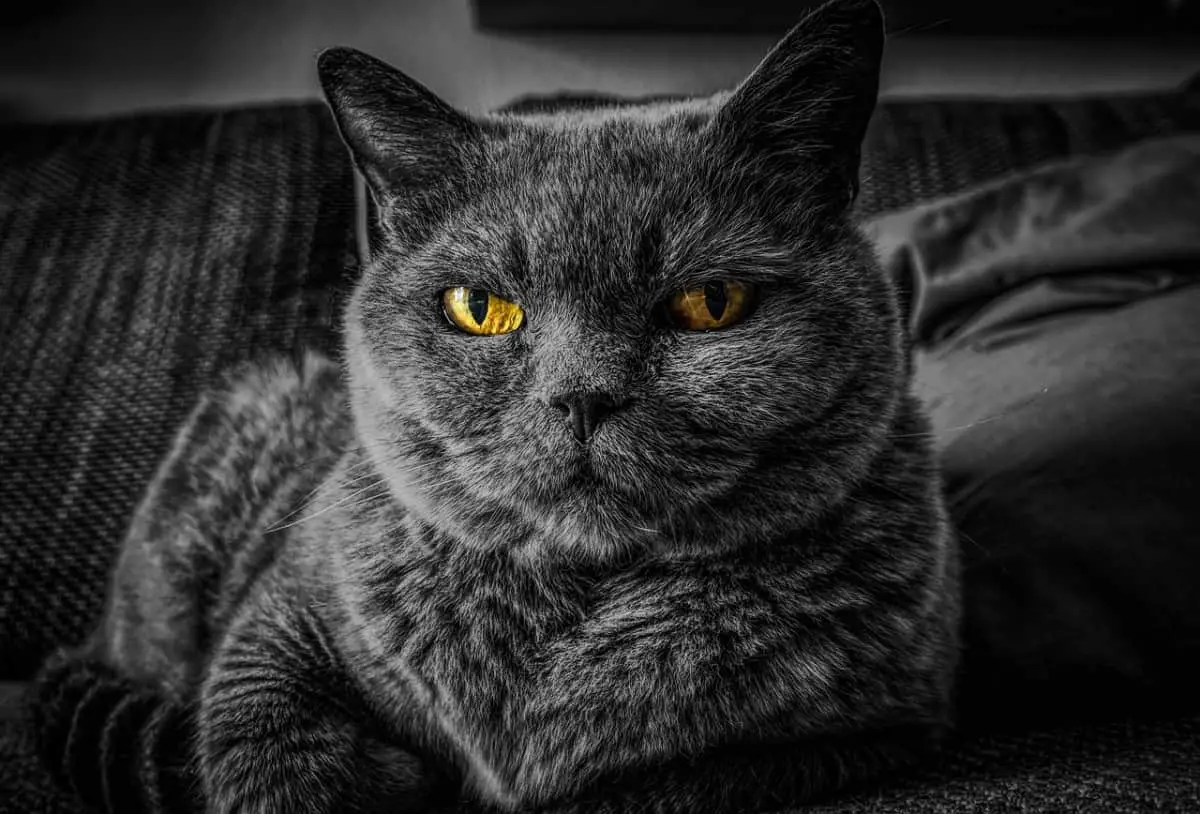Old age itself does not cause cats to be grumpy. Although old age should not make a cat grumpier, some accompanying physical changes of the aging process may contribute to a cat’s sudden change in behavior or personality.
Older cats may be suffering from a sickness that is increasing their irritability and resulting in a grumpier personality. It is best to identify the reasons for your cat’s behavior and try to correct or accommodate it, and your veterinarian can help you do so.
The rest of the article will tell you everything you need to know about your cat’s behavior in old age and how to properly care for them.
Does Old Age Make Cats Grumpy?
Cats do not get grumpy just because of old age. Cats tend to be calmer over time as compared to their energetic and playful days as a kitten, but they should not necessarily get grumpy with advanced age. If your older cat is suddenly acting grumpy, it may be a sign of an underlying issue.
Why is My Cat Grumpier With Old Age?
Your cat’s sudden moodiness in its old age may be a symptom of sickness or discomfort with its aging body. Elderly cats are more prone to diseases and less able to care for themselves, so grumpiness could be a sign of an underlying sickness. Older cats are also less agile than their younger selves, and this difference may cause discontent. Making changes to their environment and care can help amend these changes and keep your cat healthy and comfortable.
Is My Older Cat Grumpy Because They Are Sick?
If you have noticed unusual behavior from your car in its old age, it may be due to a medical condition or sickness. Just because your cat has gotten to an older age, does not mean that all its behavior changes are a natural part of the aging process. Some behavioral or temperament changes in your cat may be a sign of suffering from medical ailments, and they should be checked out by a veterinarian.
What Are Some Common Sicknesses for Old Cats?
Older cats are more prone to sickness and diseases than their younger selves, according to Cornell. There are many health risks and conditions that are exacerbated by the aging process, such as arthritis, cognitive dysfunction, dental disease, vision loss, dehydration, and other diseases.
Arthritis
Arthritis is a degenerative joint disease that is heavily represented in older cats. This condition can cause your cat pain and make it harder to perform daily tasks such as using the litter box, jumping, or climbing. Your cat’s grumpy mood might reflect this pain and discomfort, and you should seek veterinary care for any possible medications needed. You can also decrease discomfort by reducing mobility obstacles.
Cognitive Disfunction
Senility in cats functions similarly to that of humans. Cats of advanced age may exhibit signs of disorientation, increased meowing, urination/defecation outside the litter box, anxiety, loss of appetite, disrupted sleep patterns, or confusion.
Dental Disease
Dental disease is highly common in elderly cats. Sores, bad breath, swelling, and redness can be signs of dental disease. This causes mouth and tooth pain for the car, making it more difficult to eat and possibly resulting in irritable behavior. Try to brush your cat’s teeth semi-regularly to prevent dental disease and visit your vet if you notice these symptoms.
Vision and Hearing Loss
Hearing loss is very common in older cats for many reasons and is largely associated with the aging process. Many older cat owners notice cloudiness in the eyes, but this is a common occurrence that does not cause vision loss itself. However, vision loss may also occur due to a number of other reasons, such as hypertension. Loss of senses can make your cat more irritable as it cannot properly register you or its surroundings. Unfortunately, there isn’t much you can do to treat this change.
Kidney Failure
Kidney failure is common amongst older cats. Aging causes a variety of changes to a cat’s kidneys that can lead to improper function or failure. Symptoms include lethargy, weight loss, loss of appetite, loss of urine control, dehydration, and high blood pressure. A blood or urine test by your vet will likely be needed to diagnose your cat, and though there is no definite cure, there are many therapies and methods to help this condition, such as a controlled nutrition diet.
How to Help My Older Cat Be More Comfortable
Older cats may have more difficulty doing tasks that were normally easy for them. For example, they are less able to groom themselves, which can lead to matted fur. Noticing these changes and helping take care of the task for your cat can greatly improve its comfortability and reduce any grumpiness or irritable behavior. Making their food, water, and litter more accessible can also help due to their decreased agility.
How to Take Care of Your Cat in Its Old Age
Weekly checkups can help to identify any problems your elder cat may be experiencing, and your vet can show you how to perform these yourself. It can be as easy as checking for lumps when you pet your back or checking its teeth when your rub their chin. Daily brushing and grooming can help preventHow to Stop My Cat Getting Hairballs hairballs and increase blood circulation. Proper nutrition can help mitigate increased health risks caused by being over or underweight. Regular vet visits be a great help, as cats are prone to hide illnesses and early treatment increases the success rate.
[su_box title=”Affiliate Disclosure”]This website is supported by its readers. Please assume that all links are affiliate links. If you make a purchase from one of the links we will make a commission from Amazon. Thank you.[/su_box]




